Projection that Sinn Fein will be in next Government ‘has been ‘shattered’
Counting in the local government elections is well under way.

Ireland’s public expenditure minister has said the projection that Sinn Fein will be in the next Government has been “shattered”, as the opposition party faces a tough local election battle.
A day after voters headed to the polls in three highly anticipated elections, the ballot boxes were opened at 9am on Saturday and counting is well under way.
Irish people have voted to elect a swathe of new councillors as well as picking candidates to send to the European Parliament and, for the first time, some were asked to decide on a directly elected mayor to represent them locally.
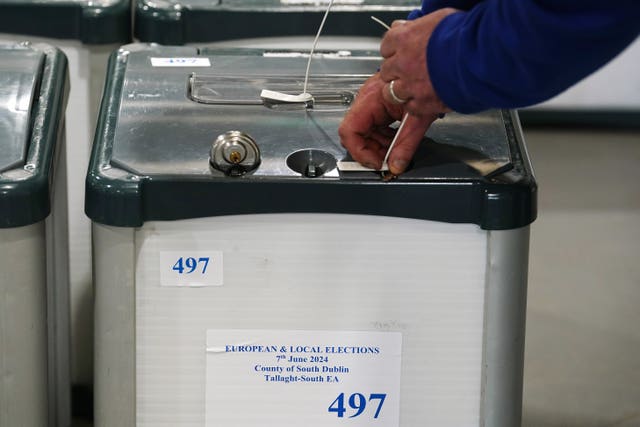
While tallies are pointing to some gains for Sinn Fein, it is not anywhere near the expected spike in votes as previously predicted.
Paschal Donohoe, Minister for Public Expenditure, said: “The early tallies show that there is a large majority of people who are willing to vote in a very different way to how extremists and the far right will make the case for.
“I think there is a very compelling narrative to be made – at a very early stage in this – that Fine Gael has been successful in getting out its votes, that our campaign has made a difference, and that the approach of the Government parties has been recognised by voters.”
Asked about Fine Gael’s performance compared with Sinn Fein, he added: “Overall, the portrayal that some have offered of Fine Gael as a tired party – that narrative, that claim, has been shattered by the results that we’re seeing potentially coming through at the moment.
“And the other narrative that there’s anything inevitable about Sinn Fein being in government – that’s been shattered too.”
Mr Donohoe said the Government will “go the full distance” before a general election must be called by March next year at the latest.
Deputy premier Micheal Martin said his Fianna Fail party is doing “far better” than predicted.
He said the party will gain an MEP seat in the Midlands-North-West constituency for the first time in 15 years.
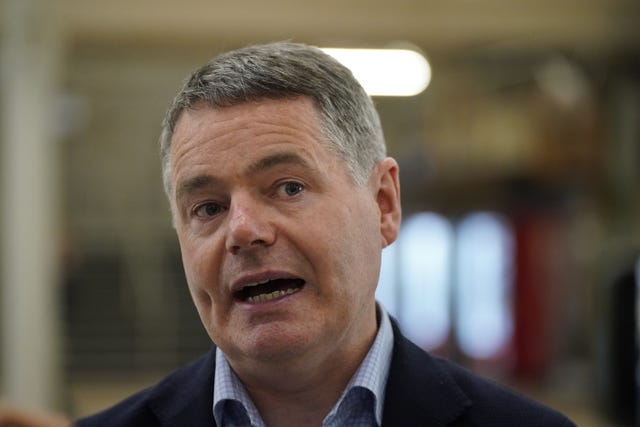
“I’ve been looking at opinion polls now for the last three years. This ‘internet panel’ polling having Fianna Fail at 14% and 15% – clearly Fianna Fail will be well ahead of that and will be over 20% by the time all of these counts are collated and put together.
“We put up a very robust performance and we’re holding our own compared to our performance in the general election of 2020.”
Minister for Finance Michael McGrath said there had been “no massive breakthrough” for the far right in the elections.
“That can only be a good thing,” the Fianna Fail TD said at Cork City Hall.
“While migration did come up on a lot of doors – and many people do have genuine concerns, legitimate concerns which we are seeking to address – the far right do not represent the Irish people. I think that is clear from the tallies that we have seen so far.
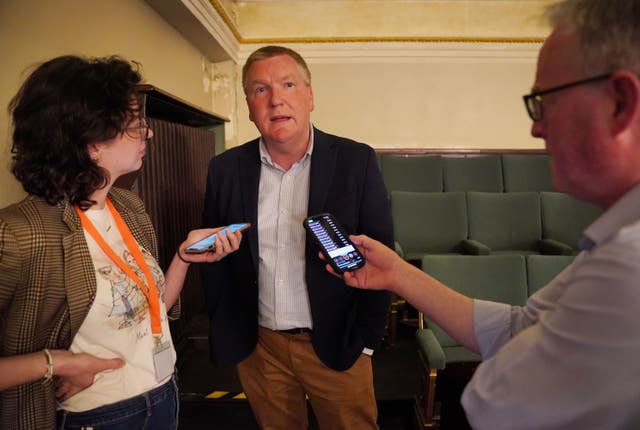
“There’s no breakthrough here, there’s no tide of support for the far right in these elections from what I can see so far, and that pleases me, I have to say.”
The full results of the elections will take days to be finalised because Ireland uses a system of proportional representation which allows voters to rank every candidate in each race by order of preference. The process means ballot papers are sorted and counted multiple times by hand.
The separate elections come as Irish politics is dominated by a housing crisis, the cost of living and migration.
The coalition partnership of Fine Gael, Fianna Fail and the Green Party has been battling criticism domestically and on the continent over other issues including climate action, agriculture policy and defence co-operation in the EU.
The polls will provide political parties with evidence of voter sentiment, having had to wait more than four years since the last nationwide elections.
The local government elections have been sorted and counted first, before the papers in the European and Limerick mayoral elections are counted on Sunday and Monday respectively.
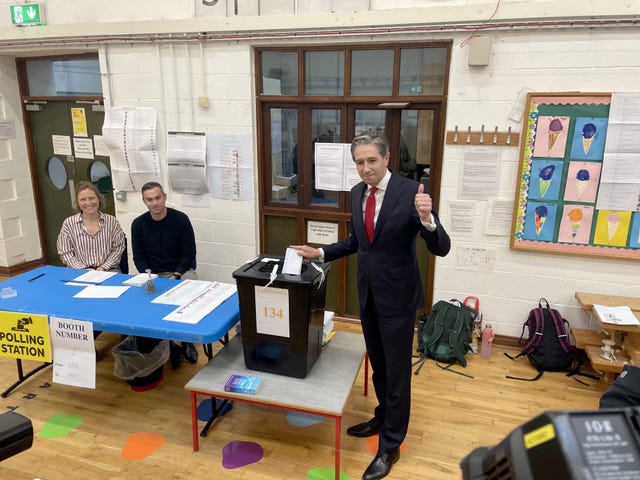
He also said that his candidates Claire Byrne and Michael Pidgeon had the potential to top the polls in their Dublin city regions.
Speaking at the RDS count centre in south Dublin, he added: “My eyes are on the country, I think we have a chance in Dingle (with) Peadar O Fionnain. It’s very tight to call but he’s not out of the running.
“If we win a seat in Dingle I’ll be celebrating as much as Dublin Bay South, if not more because that would send a really strong signal about the whole country.
“So far, we are hopeful but obviously we have to wait and see what happens. We look forward to see the next two days.”
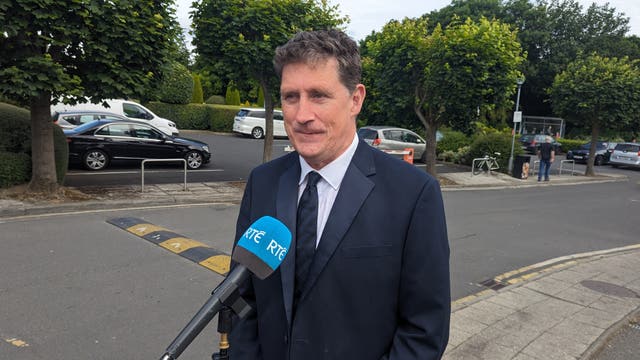
The 2020 campaign saw a massive increase in support for Sinn Fein, which took almost a quarter of the popular vote.
But the party was still left in opposition after failing to run a sufficient number of candidates in the parliamentary constituencies.
Estimated support for Sinn Fein then hovered above 30% for a long time, even temporarily reaching highs of around 35%.
However, polls over the last eight months suggest support is on a dramatic slide as independents take more of the expected vote share.
Many ballot papers contain a large number of independents with a variety of political leanings, several of whom have been described as anti-immigrant.
Fine Gael appears to have had a “Harris hop” in the polls after the shock resignation of Leo Varadkar as leader of the party earlier this year, leading to Simon Harris taking over that position as well as the role of Irish premier.
The results of the three campaigns could direct Mr Harris’s decision on when to call the next general election, which must be held by March next year.
Millions of residents were eligible to vote in Friday’s local elections, which will see 949 councillors elected.
At the same time, EU citizens registered in Ireland were eligible to vote for 14 Members of the European Parliament (MEPs) across three constituencies: Dublin, South and Midlands-North-West.
While the count for the European elections is not officially under way, the segregating of the ballot papers allowed observers to get a sense of which candidates are performing well.
In Dublin, incomplete tallies by noon suggested Fianna Fail’s Barry Andrews and Fine Gael’s Regina Doherty were leading.
Green Party incumbent Ciaran Cuffe, Independent Ireland candidate Niall Boylan, Labour representative Aodhan O Riordain and Sinn Fein hopefuls Daithi Doolan and Lynn Boylan will be fighting over the remaining two seats.
Speaking on Saturday, Mr Cuffe said the race was “hard to call”.
Asked if he believed he could stay ahead of Mr O Riordain and Social Democrat Sinead Gibney, the at-risk MEP added: “For the wildebeest, you just have to stay ahead of the lion.”
In the South constituency, Fine Gael’s Sean Kelly and Fianna Fail’s Billy Kelleher are considered to be in contention for re-election.
Sinn Fein will be hoping to regain a seat in the region with Kathleen Funchion.
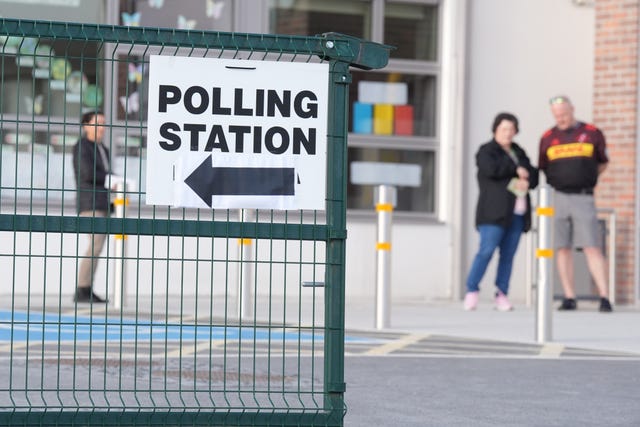
Fianna Fail’s Barry Cowen, Independent Ireland candidate and former RTE correspondent Ciaran Mullooly and Independent MEP Luke “Ming” Flanagan have also polled well in some regions across the vast constituency.
A clearer picture will emerge once counting begins on Sunday.
In the south west, voters in Limerick city and county had the opportunity to directly elect a mayor with executive powers on long-term strategic planning.
The role is seen as a test case for other local authorities.
A cross-party tally from midday indicated that Independent candidate John Moran was in the lead with around 25% of the votes.
The former secretary general at the Department of Finance is ahead of Independent candidate Helen O’Donnell in second place.
The elections will be held again in five years.





